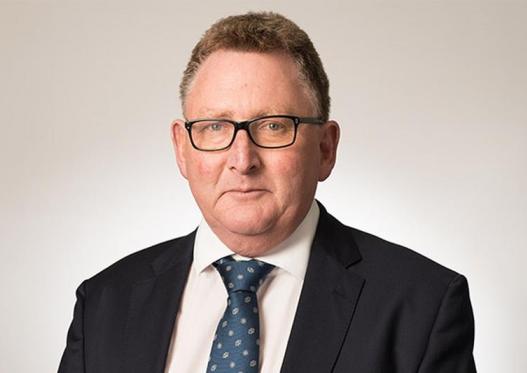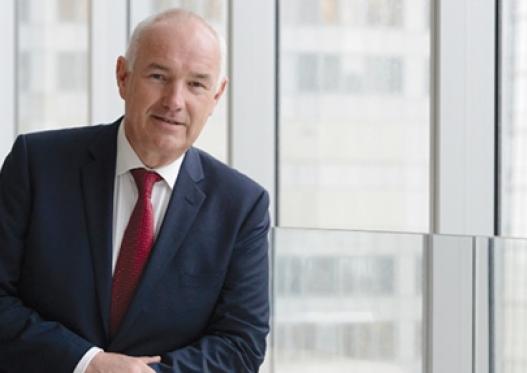Why has professionalism never been instituted in Australia’s banking industry? And what are the benefits of professionalism?
FINSIA’s contribution and answers to those questions are featured in the prestigious Starling Compendium - the comprehensive annual report into Culture and Conduct Risk that highlights why it matters and what regulators are doing to address it.
The 340-page, globally-referenced compendium that features the insights of 30 global leaders can be accessed here.
Chris Whitehead, FINSIA CEO and Dennis Gentilin, FINSIA Acting Head of Standards’ In Focus article ‘Professionalism in Australia’s banking & finance industry’ can be read in full here.
"For a variety of reasons, professionalism has never been formally instituted in the Australian banking industry.
This is not to suggest that bankers over the years have not viewed themselves as professionals.
Rather, the formal structures that underpin and support professionalism have never been put in place. When they have, the approach has been piecemeal.
Without these structures, the full benefits that professionalism can deliver are never realised. And the benefits associated with professionalism can be significant.
Properly instituted it can reduce the burden of regulation and government oversight, improve consumer outcomes, and enhance the reputation of the industry and its practitioners.
Over time, the trust this elicits drives enormous benefits, both economic and social.
For obvious reasons, conduct has become a prominent issue for the banking and finance industry in Australia.
It is our belief that professionalism has a role to play in helping address this issue.
But for this to happen, all of the formal structures associated with professionalism must be instituted.
To understand what these structures are and what the banking industry needs to do, a brief history of professionalism in Australia is required to provide the necessary context.

In Australia, a statutory scheme has been developed that enables professions to be accredited.
The genesis for the scheme can be traced back to the 1960s when a precedent was established that enabled statements containing advice, information, or opinions to be deemed negligent.
Although this did not cause too many concerns initially, as the size of the damages awarded grew, so too did the cost of insurance and the viability of many practitioners.
New South Wales (NSW) was the first state to pass legislation to address this potential crisis.
The Professional Standards Act (1994) was passed in late 1994 and came into force in May 1995.
The Act created the Professional Standards Council (PSC), an independent statutory body whose role it is to work with professional associations to ensure they have the processes and systems in place required to be recognised as a profession.
These requirements are documented in a Professional Standards Scheme, “legal instruments that bind associations to monitor, enforce and improve the professional standards of their members, and protect consumers of professional services.”
By abiding to the tenets of the scheme, a professional association can limit the amount of damages its members might be liable for.
At the turn of the century the Commonwealth Government passed legislation that established a PSC in each state.
Their role is to administer the legislation and work with approved professional associations (of which there are currently 17) to ensure they adhere to their Professional Standard Schemes.
The PSC has developed a model for professionalism that provides professional associations with guidance on what is required to do this successfully.
According to Australia’s PSC, “a good profession has demonstrated a capacity for self-regulation and consumer protection.”
For this to occur, a range of formal processes, practices, and structures must be in place to support these outcomes.
To capture these, the PSC has developed a reference model that describes a total of 40 elements that need to be in place if a body of practitioners would like to declare themselves to be a profession.
For industries and practitioners on a journey towards professionalism (or considering embarking on one), the PSC has also developed a simpler, less prescriptive model. Known as the “5Es” model (for reasons that shall become obvious), the model provides a highlevel description of the five core elements that must be in place to support professionalism.
These are:
Ethics: The declared professional and ethical standards to which practitioners in the industry commit to holding themselves accountable to.
Education: The technical and professional requirements an individual must have to be a practitioner in the industry (both entry-level qualifications and continuing education).
Experience: The personal capabilities, competencies and expectations of experience required to practice as a professional in the industry.
Examination: The methods employed to ensure practitioners adhere to the ethical, education and experience standards (above), and are held accountable when they fail to do so.
Entity: A central entity that registers practitioners, administers a disciplinary scheme, and provides the community with confidence that individuals in the industry are committed to a higher duty of care and conduct themselves with the utmost level of probity.
The overarching point of the models developed by the PSC is that professionalism is not just about standards. Nor is it just about education. Or registration to an entity. Rather, it is a combination of processes, practices and structures that come together to create a system that promotes ethical conduct and adherence to higher standards.
An industry or group of practitioners cannot claim to be a profession if only a subset of the elements are in place. By putting them in place, it is possible to create an environment where the professionals within an industry are accountable to themselves and their peers. They become a community of practitioners who take pride in their profession and work hard collectively to safeguard its reputation. As we like to say, you do not have professional firms, you have firms of professionals.
For the banking and finance industry in Australia, the preceding sections provide important background and context. As mentioned in the introduction, professionalism can deliver significant benefits to the industry. And even if accreditation with the PSC is not the end goal, the models the PSC have developed provide a blueprint for what is required if the industry wishes to embark on a journey towards professionalism.
FINSIA, the not-for-profit professional membership body for financial services with which we are associated, is proud to be playing an important role in this journey. Indeed, professionalism is core to FINSIA’s heritage. Its roots can be traced back to 1886 when the Bankers Institute of Victoria was founded. One of the key objectives of that association was to drive improvements in professional practice within the industry. We have been going at it for a long time!
Unfortunately, for organisations like FINSIA, professionalism has been deprioritised over the past 30 years.
Industry and market trends have resulted in automation, efficiency and short-term returns taking precedence over good stewardship.
However, recent conduct failures have caused the pendulum to swing, and an appetite for professionalism has returned to the fore. True to its origins, FINSIA has been playing an important role in aiding this momentum shift.
To illustrate, FINSIA recently developed a series of professional qualifications that target bankers at different levels of experience. One of these, Professional Banking Fundamentals, provides baseline knowledge for anyone working in or entering the industry.
Another, Certified Professional Banker, deepens knowledge in specific domains of banking and helps practitioners enhance their strategic and ethical judgement.
We are pleased to say that take up of these education opportunities has been promising.
A number of institutions have committed to putting all of their staff through the Professional Banking Fundamentals course, including one of the four major banks. As at March 2021, 5,046 practitioners across Australia have enrolled in this baseline course. Recently, FINSIA has kicked off a project to develop draft professional standards for practitioners working in the retail and business banking sector of the industry. The draft standards were made public in March 2020 and, after a period of consultation with practitioners and other interested stakeholders, they will be formalised by the end of the 2021 calendar year.
Over time, there is the potential for these initiatives to form part of a group of baseline prerequisites required to work in the industry. If they are complimented with some form of probationary employment period, a formal registration system, and mechanisms that recognise the benefits that different levels of experience bring to the industry, combined these measures will go a long way towards covering the education, ethics, and experience components of the 5Es model.
This leaves examination and entity. These are arguably the most difficult elements of professionalism to implement. Nobody enjoys being subject to scrutiny and accountability. And establishing an entity that administers and oversees all of the work associated with professionalism requires significant investment. However, for reasons highlighted above, an industry can’t claim to be truly professional (or reap the benefits that come with professionalism) without putting these building blocks in place.
The case might be that FINSIA is not the most appropriate body to deliver all of the benefits associated with professionalism. For example, it might best act as an entity through which practitioners are registered and provided with continuing education. Examination and ongoing maintenance of professional standards would require a degree of independence that, without appropriate safeguards, FINSIA is unable to provide. Whatever the case, we stand prepared to play a role – our purpose demands that we do so.
Conclusion
Professionalism has the potential to deliver enormous benefits to the banking and finance industry. Among other things, it can ease legislative and regulatory burdens, contribute to improved customer outcomes, enhance the industry’s reputation, and create a sense of pride and belonging among practitioners. It is when a community of professionals is successfully established and committed to higher standards that greater self-regulation becomes a real possibility.
To obtain these benefits an industry cannot pretend to strive for professionalism by applying band aid solutions – it must be instituted properly. For this to occur, all the elements associated with professionalism must be put in place to create a system that promotes ethical conduct and a culture that sustains it. FINSIA is proud to be playing a role in this work and, with the industry’s support, continuing to do so."








